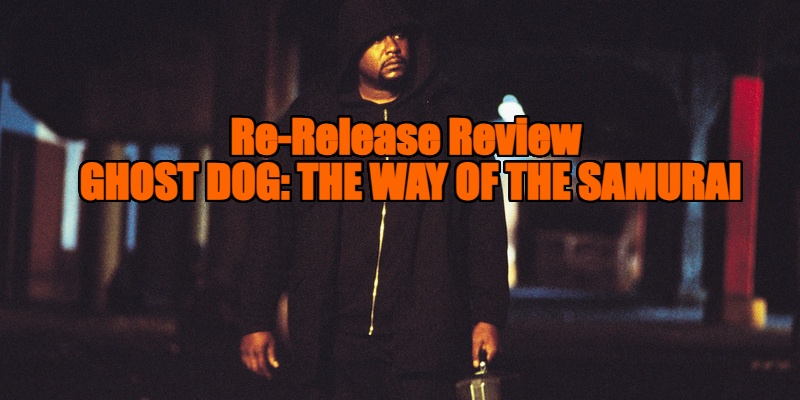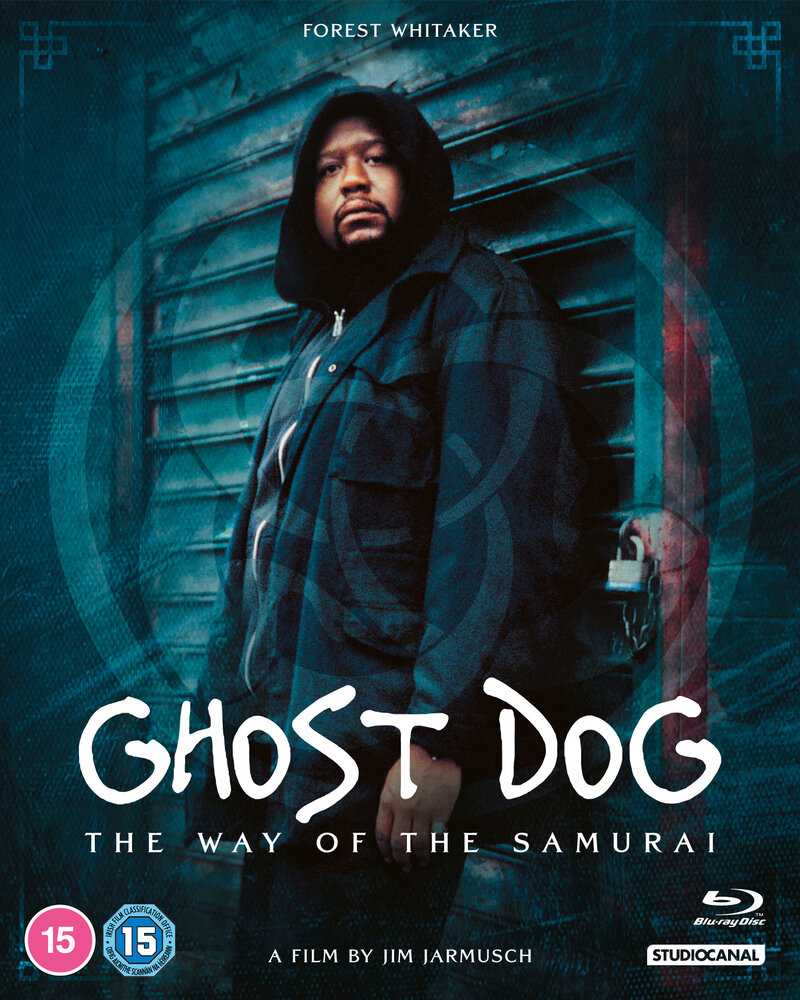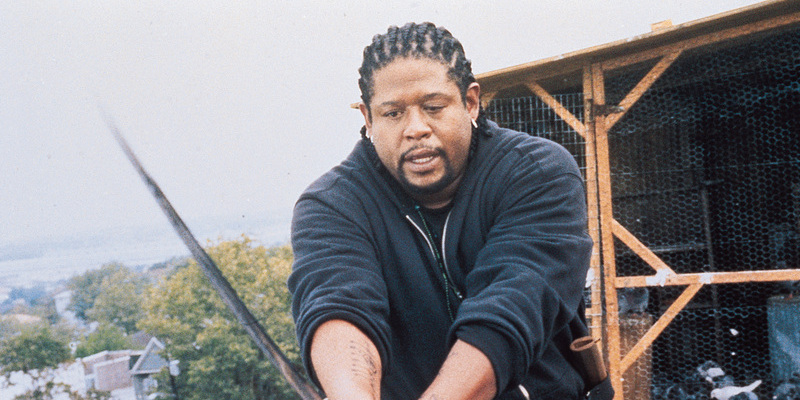
Review by
Eric Hillis
Directed by: Jim Jarmusch
Starring: Forest Whitaker, John Tormey, Cliff Gorman, Henry Silva, Isaach de Bankolé, Camille Winbush

The hitman (and occasionally hitwoman) was a popular figure in 1990s
cinema, displacing the cowboy of old as the taciturn anti-hero onto whom
filmmakers and audiences could project their own ideas. The cowboy was
western cinema's cousin of the Japanese Samurai, with two of the biggest
westerns of the 20th century – The Magnificent Seven and
A Fistful of Dollars – being remakes of Kurosawa samurai
films. Jim Jarmusch joined these cross-cultural dots with his
1999 movie Ghost Dog: The Way of the Samurai.
The film's protagonist is Forest Whitaker's Ghost Dog, one of
those classic screen hitmen who likes to keep to himself, living in a
loft with just his pigeons for company. Ghost Dog works for Louie (John Tormey), a clownish Italian mobster (the surreal gangsters here are straight
out of a David Lynch movie) who once saved him from being killed in an
alley by a group of attackers. When not bumping off people for Louie,
Ghost Dog immerses himself in the teachings of the Buddhist monk
Yamamoto Tsunetomo, as outlined in his book 'Hagakure'. The film's
chapters are preceded by passages from the book, narrated in voiceover
by Whitaker's distinctively laid back drawl.

When one of Ghost Dog's hits is witnessed by the daughter of a mob
boss, the Mafia decides he's a liability that needs to be erased.
Trouble is, they don’t know where he lives, as Louie only contacts him
through carrier pigeon messages. Thus begins the classic plot of a
hitman turning on his own employers, an evergreen narrative still
thriving today as seen in David Fincher's The Killer.
At the time, Ghost Dog seemed an odd fit for Jarmusch,
comparable to Apichatpong Weerasethakul making a slasher movie in 2023.
Comparisons were made to the languid style of French filmmaker Jean
Pierre-Melville, and Ghost Dog shares numerous
similarities with Melville's own hitman thriller
Le Samourai. In the '90s this was what constituted "slow cinema" but watching
Ghost Dog in this era of ponderous three hour long Batman
movies, it zips along with the pace of a Buzzcock number in comparison.
Jarmusch's action scenes may be brief but they're technically
accomplished and as thrilling in their own way as those of Luc Besson's
Leon. The director punctuates his anti-hero's attacks by having his targets
watch cartoons which serve as omens for their forthcoming deaths.
There's a fantastic sequence that sees a mobster shot through the
drainpipe of his bathroom sink, which is simultaneously a nod to Seijun
Suzuki's Branded to Kill and the very cartoon seen playing
on screen.

If Ghost Dog seemed out of step with Jarmusch's
filmography in 1999, it now feels like a companion piece to his 2016
film
Paterson. Ghost Dog features fictional license plates but it's
clearly filmed in post-industrial urban New Jersey. Both movies feature
bookish protagonists who take joy from the simple pleasures of life. For
Ghost Dog it largely revolves around his respect for nature: his
ultimate revenge spree is prompted by the massacre of his pigeons while
his murder of a pair of hunters boasting of downing a black bear will
have animal lovers cheering him on. Nature seems to almost communicate
with Ghost Dog. His plan to shoot a mob boss from a distance is scuffed
when a small bird lands on the barrel of his rifle and a dog stares at
him as though silently judging his actions.
As with Paterson, the streets Ghost Dog inhabits are filled with small details of life,
often of an absurdist nature like an elderly potential mugging victim
who dispatches his attacker with surprise karate moves. Ghost Dog claims
he has one friend, a Haitian ice cream seller (Isaach de Bankolé)
who can't speak a word of English. This arrangement seems to suit Ghost
Dog, with the two men enjoying each other's company unburdened by a
shared language. As with Besson's Leon, the hitman's heart is exposed by a young girl (Camille Winbush) who swaps books with the assassin.

With his melancholy hang-dog features and a face that almost seems like
it would melt if he cried, Whitaker was born to play this character. The
actor possesses one of the most heart-warming smiles in Hollywood, and
the beam on his face when the bird lands on his rifle is touching but
also tragic: this is a man who deserves better than the fate we expect
he's destined for.
Several sequences see Jarmusch ape Scorsese's
Taxi Driver as Ghost Dog drives through a night filled
with potential dangers, and there's a direct reference to the scene
where Travis Bickle drives past the pimp Sport. But unlike Bickle, who
decides the world is his enemy, Ghost Dog's teachings have taught him to
find beauty in the darkness. Where Bickle is stuck in his own head,
Ghost Dog fills his mind with the teachings of others. If more men
followed his lead we might be in a better place today.

Ghost Dog: The Way of the Samurai is on UK DVD, 4K UHD, bluray and VOD from October 23rd from
Studiocanal.

